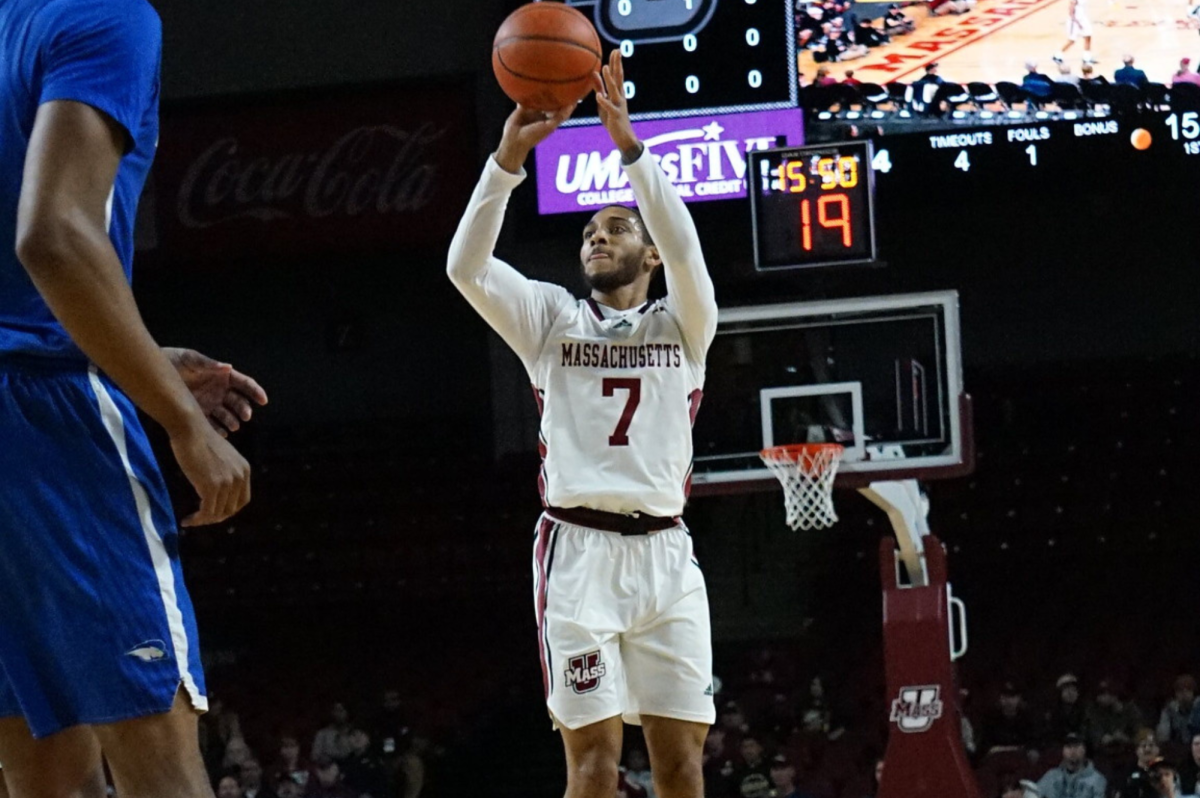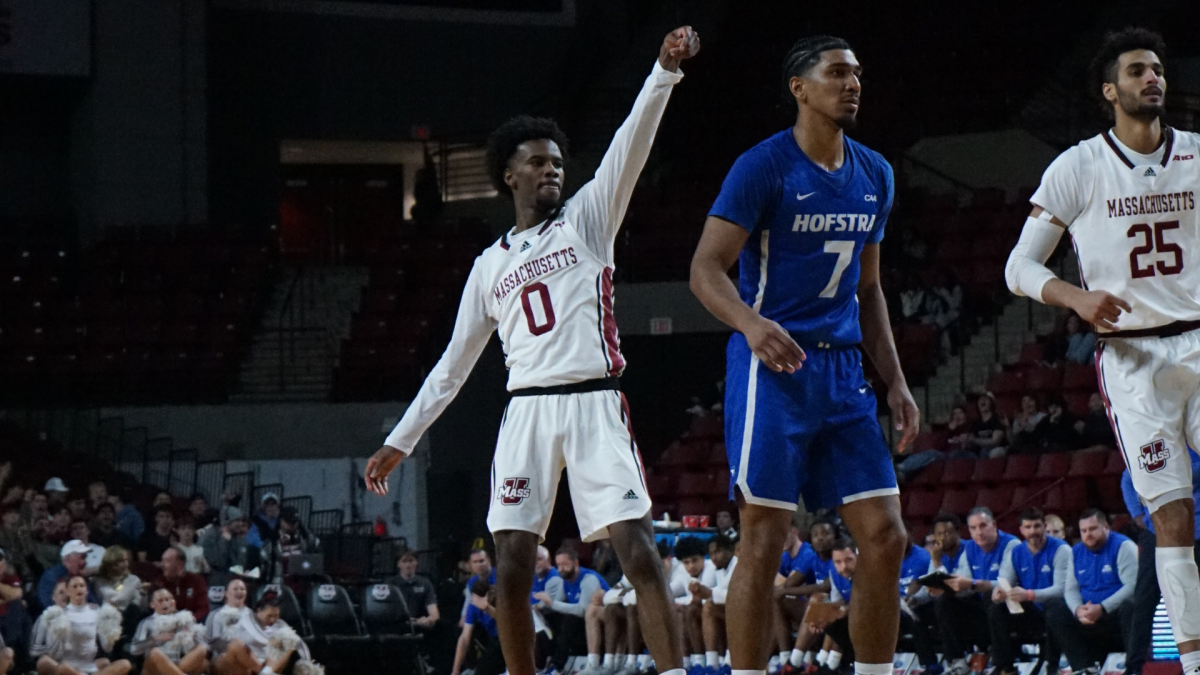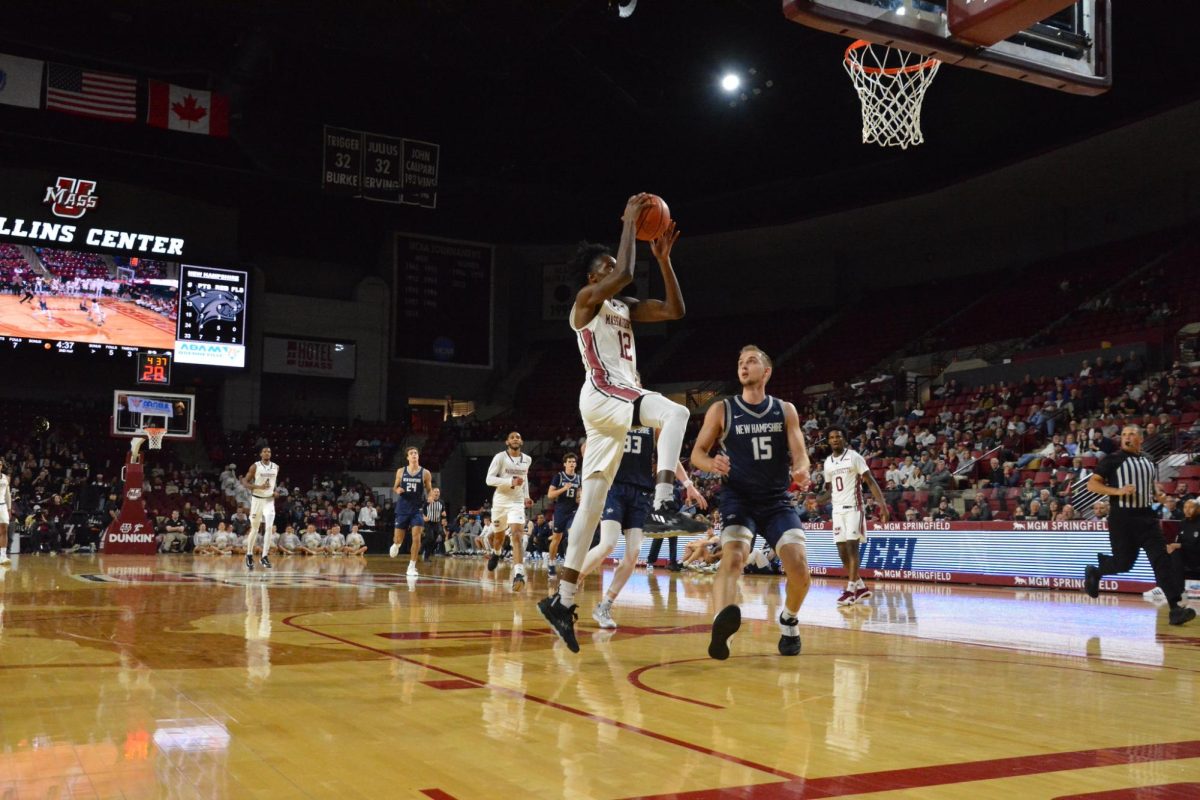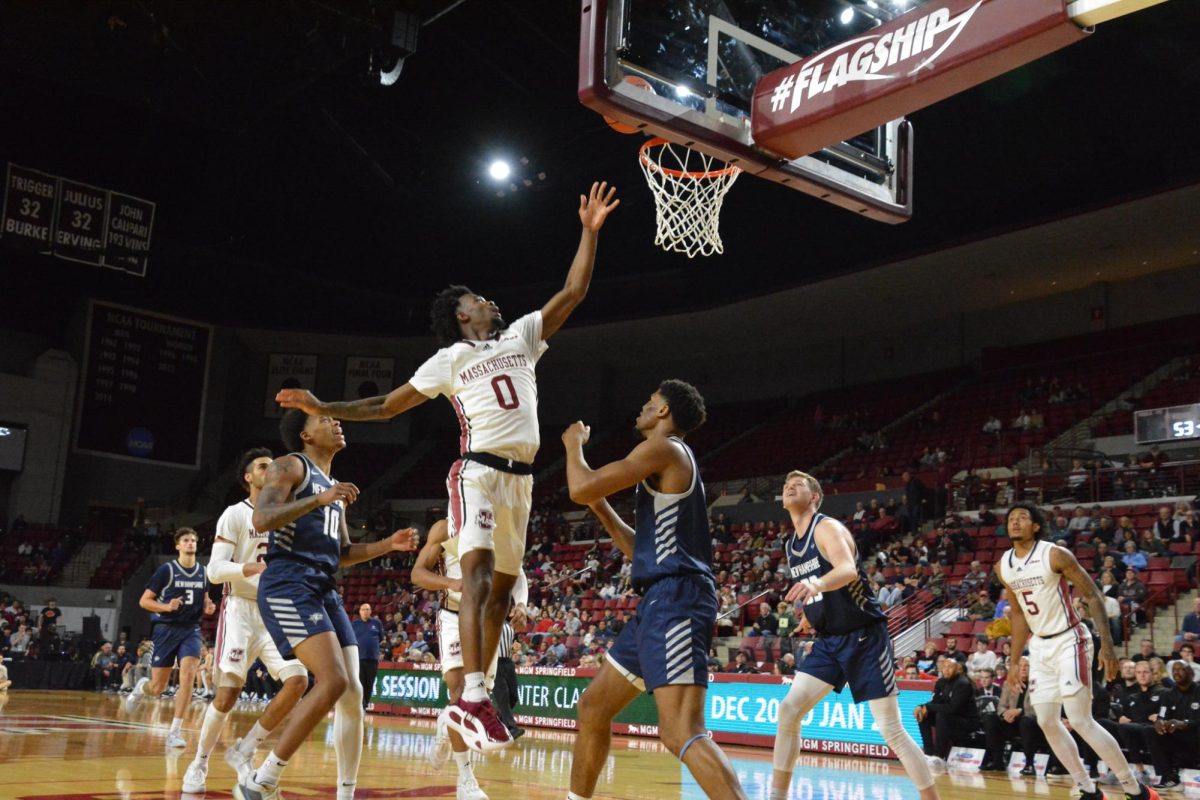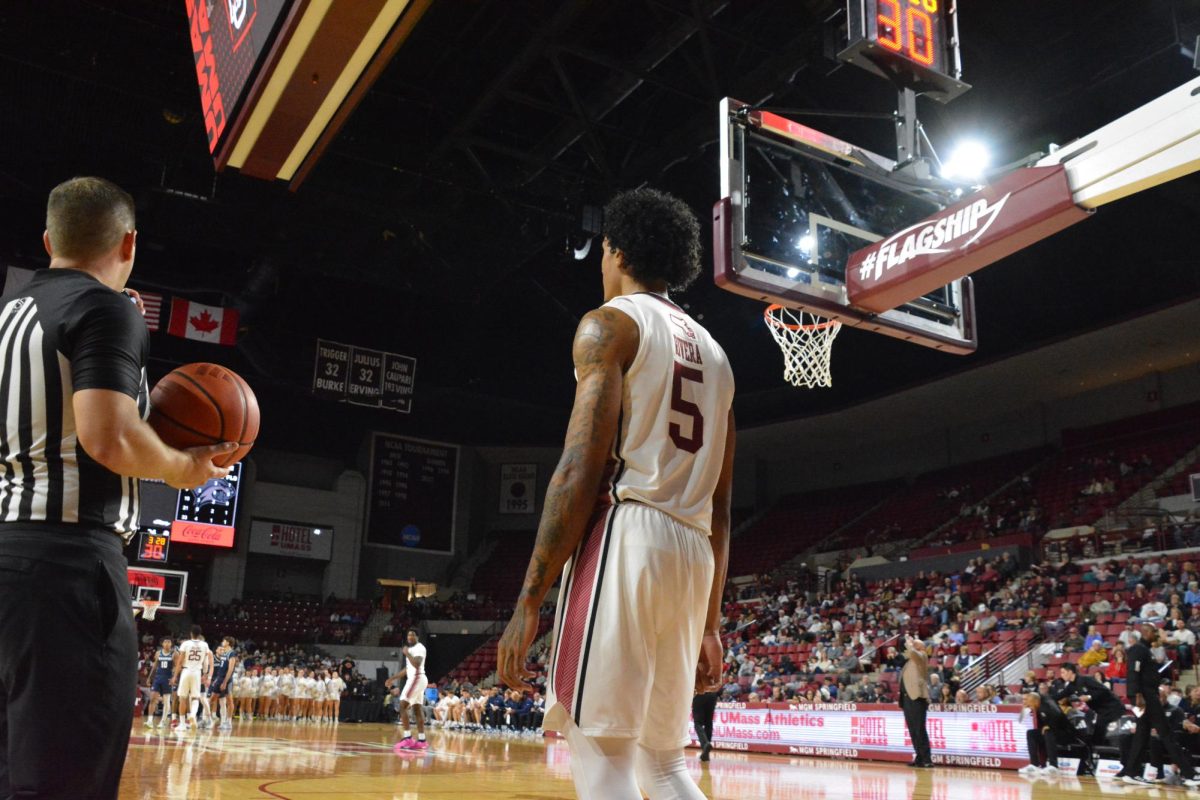Twenty-four years and five head coaches later, Bonnie Otto’s basketball knowledge has increased from when she first began working as the secretary for the Massachusetts basketball team.
“I didn’t even know how many guys played on the court at one time, I knew nothing about basketball, and it took me a while for me to get interested in the sport,” Otto says.
Otto was living in Turner Falls, Mass., and had another job working in a mail room for another company when her sister talked her into coming down to Amherst and applying to be the main secretary for the Minutemen. Otto made the trip, filled out an application and didn’t really think much of it, until she got a call for an interview with then head coach, Ron Gerlufsen. The women’s basketball coach, Barbra Stevens, also wanted Otto to be the secretary for the Minutewomen. She didn’t know what she was getting herself into, but thought the interview went well. A few days later, Otto came back for a second interview, and Gerlufsen said if she wanted the job she could have it.
“Back in 1985 when I started here, basketball wasn’t basketball like it is now at UMass. The team wasn’t very successful, they never did anything the first few years that I was here and I really didn’t think the job was that big of a deal, at first.”
Then came John Calipari.
The Minutemen let Gurlufsen go at the end of the 1987-1988 season, after UMass finished with five losing seasons with him at the helm, and hired Calipari, an assistant coach from the University of Pittsburgh. Otto remembers the first time she met the second winningest coach in UMass basketball history.
“I met John in 1988, and I remember he looked so young. After he was hired, we had a little meeting. He told me that I was going to be so busy with just his calendar, I wouldn’t know which way was up, and I didn’t believe him, but it was true.”
In his first season, the Minutemen didn’t make much of an improvement, going 10-18 overall and 5-13 in the conference, finishing just one spot ahead in the final A-10 standings the year before.
But in 1989-1990, Calipari led the team to the National Invitational Tournament, the first postseason play for UMass since 1967. The Minutemen finished with a 17-14 record, the first winning record since 1977-1978. Over the next seven seasons, Calipari led the Minutemen to the Sweet 16, the second round of the NCAA Tournament twice, the Elite Eight and the memorable 1995-1996 Final Four season as well as No. 1 national rankings.
“I can remember back when John was here, it seemed like he was the most powerful person in the state, really, because he really was,” Otto says, who hasn’t talked to the new coach at the University of Kentucky in quite some time.
After Calipari left UMass for the NBA, Bruiser Flint took over the program for five seasons, followed by Steve Lappas. Both coaches had minimal success with the program, but not nearly the amount that Calipari brought to Amherst. However, Otto feels that personally, these were some of the most memorable times for her.
“I do miss the time of the ‘90s, we were like a family – the players, the coaches, me. We went to each others houses and we were all young.”
When Travis Ford came in 2005, Otto felt another resurgence of the program, who enjoyed working for Ford for three seasons.
“He said once that sometimes it felt like I was his boss, instead of the other way around because after a while, you get to know what needs to be done around here.”
After taking the job at Oklahoma State following the most wins in program history (25) and a trip to the NIT final, the coaching search was on again, with Otto working under her fourth coach in nine years.
That coach was Derek Kellogg.
Kellogg, a former point guard under Calipari and member of four straight regular season A-10 and Tournament Championship Minutemen teams, helped UMass reach the Elite Eight as a senior captain of the 1994-1995 team, and was named the 21st coach of the Minutemen in April of 2008.
Otto remembers Kellogg coming into the office a lot to talk to Calipari during his tenure at UMass, and admits that it is a little weird to have a former player as a boss now.
However, Otto feels that Kellogg is taking all the right steps to bring the program back to national prominence. And she’s someone who would know, because she saw the program at its worst and at its best.
“I think coach Kellogg is so involved in the community, and I see that a lot. He’s doing a lot of what coach Calipari did when he first started here, trying to get the community and the student body involved in the program, and that’s important. Everytime coach Kellogg gives a speech, I can hear coach Calipari.”
While players, as well as seasons, come and go, Otto keeps in touch with former players like William Herndon, a captain on the 1991-1992 team that lead the Minutemen to the Sweet 16. She made cookies for Marcus Camby, travels with the team, sets up appointments and has a tradition in which she calls other coaches to wish them good luck before games.
“I still don’t know the plays, they still don’t mean anything to me, but at least now I know who plays what, what position and I can see the fouls when they happen now.”
While her basketball knowledge might not be as strong as Kellogg’s, Bonnie Otto has been a key component to the UMass basketball program, and will continue to be for years to come.
David Brinch can be reached at [email protected].


